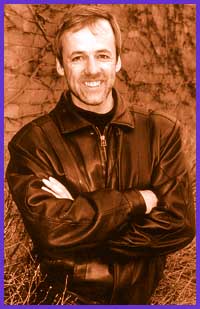It’s the first year of a revamped Pride Week Community Fair aimed at the volunteer groups that make the vibrant gay and lesbian community what it is. But some continue to opt out.
And the complaints vary.
“The nature of the day has changed. It’s become like a Mardi Gras or a party,” says the Coalition For Lesbian And Gay Rights In Ontario’s Christine Donald, waxing nostalgic about the early 1980s, when there was a more intimate, folksy kind of feeling.
Donald says the change in the nature of Pride Day is why she doubts CLGRO will rent a table this year. “We’re a political group and a lot of people aren’t dressed to carry away pieces of paper,” she says.
Too much partying is a new complaint. Most who opt out of renting tables cite too many people, not enough space, and poor organization as the deterrents.
In years past, retailers complained about the tables and vendor booths on Church St because pedestrian traffic inhibited entry to their own establishments, says Scott Ferguson of the Pride committee. “Booths were then moved to the centre of the street, and this year have been moved to Wellesley St,” he says.
Some say they just don’t have the energy to rent a table. The Canadian Lesbian And Gay Archives’s Edward Tompkins says it’s involved in too many other Pride events to take part in the Community Fair. (The Archives will host a gala at Buddies In Bad Times to celebrate acquiring the theatre’s records and to announce a new artistic director, replacing the departing Sarah Stanley.)
But the absence of such groups hasn’t affected attendance this year.
Community Fair co-chair Kim-Ellen Hurst says she’s received 120 applications for spots – the same number as last year.
“We had lots of good feedback [last year]. Community groups were happy being put on Wellesley,” she says. Setting up the tables on Wellesley instead of on Church means the groups don’t compete for space with retailers, entertainment stages or beer gardens.
Hurst, who’s new to her position, stresses that she’d like to talk to those groups who have reservations about renting, or can offer feedback about how to improve the process.
Sometimes what stands in the way of getting a table is money. Tables are $250 this year (plus a $100 damage deposit that’s returned at the end of the day). That’s too expensive for many, but there are bursaries available to those who can’t afford a table. Two of five bursaries have gone to Front Runners, a running group, and Q-Age, a spiritual group.
To find out more about renting, contact Kim-Ellen Hurst at (416) 92-PRIDE, or attend the weekly Tuesday night meetings at 7pm at the 519 Church Street Community Centre.

 Why you can trust Xtra
Why you can trust Xtra


